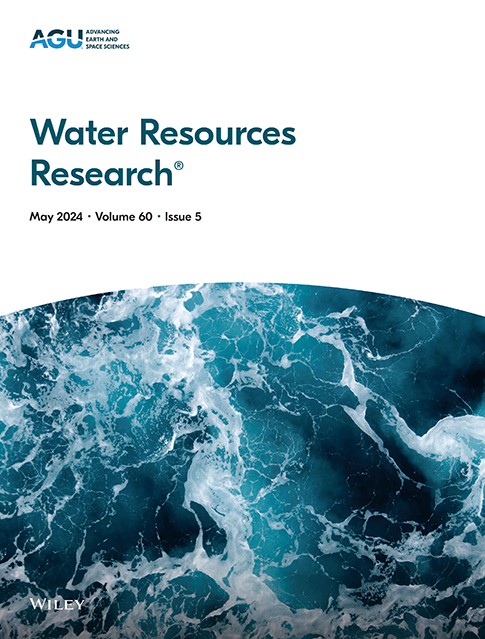Leveraging Spatiotemporal Redundancy for Sensor Data Imputation in Water Distribution Networks
IF 5
1区 地球科学
Q2 ENVIRONMENTAL SCIENCES
引用次数: 0
Abstract
The rapid digital transformation of Water Distribution Networks (WDNs) has led to the collection of multi-sensor time series with high temporal and spatial resolution. However, missing data poses a significant challenge, undermining the usability and effectiveness of data-driven applications. Performing missing data imputation is essential to enhance data quality and support intelligent management. This study first reveals that WDN sensor data in tensor form inherently exhibit spatiotemporal redundancy across three dimensions: inter-sensor similarity, intra-day regularity, and daily recurrence. The redundancy can be algebraically characterized by the low-rank structure of WDN tensor data, providing a robust foundation for imputation. Based on these findings, a novel Low-rank Autoregressive Tensor Completion (LATC) approach is proposed to efficiently impute spatiotemporal WDN data. The LATC combines autoregressive regularization with standard low-rank tensor completion, effectively capturing both global redundancy and local correlation of multi-sensor WDN data. Finally, the LATC is validated on four real-world and simulated WDN data sets under eight different missing scenarios. Extensive experiments show that the LATC significantly outperforms state-of-the-art baseline methods, achieving accurate imputation even under severe corruption and complex missing patterns.基于时空冗余的配水网络传感器数据输入
随着配水网络的快速数字化转型,需要收集具有高时空分辨率的多传感器时间序列。然而,缺少数据带来了重大挑战,破坏了数据驱动应用程序的可用性和有效性。执行缺失数据的输入对于提高数据质量和支持智能管理至关重要。该研究首先揭示了张量形式的WDN传感器数据在三个维度上固有地表现出时空冗余:传感器间相似性、日内规律性和每日递推性。冗余可以通过WDN张量数据的低秩结构进行代数表征,为插值提供了坚实的基础。在此基础上,提出了一种新的低秩自回归张量补全(LATC)方法来有效地估算时空WDN数据。LATC将自回归正则化与标准低秩张量补全相结合,有效捕获多传感器WDN数据的全局冗余和局部相关。最后,在8种不同的缺失场景下,在4个真实世界和模拟WDN数据集上验证了LATC。大量实验表明,LATC显著优于最先进的基线方法,即使在严重腐败和复杂缺失模式下也能实现准确的归算。
本文章由计算机程序翻译,如有差异,请以英文原文为准。
求助全文
约1分钟内获得全文
求助全文
来源期刊

Water Resources Research
环境科学-湖沼学
CiteScore
8.80
自引率
13.00%
发文量
599
审稿时长
3.5 months
期刊介绍:
Water Resources Research (WRR) is an interdisciplinary journal that focuses on hydrology and water resources. It publishes original research in the natural and social sciences of water. It emphasizes the role of water in the Earth system, including physical, chemical, biological, and ecological processes in water resources research and management, including social, policy, and public health implications. It encompasses observational, experimental, theoretical, analytical, numerical, and data-driven approaches that advance the science of water and its management. Submissions are evaluated for their novelty, accuracy, significance, and broader implications of the findings.
 求助内容:
求助内容: 应助结果提醒方式:
应助结果提醒方式:


